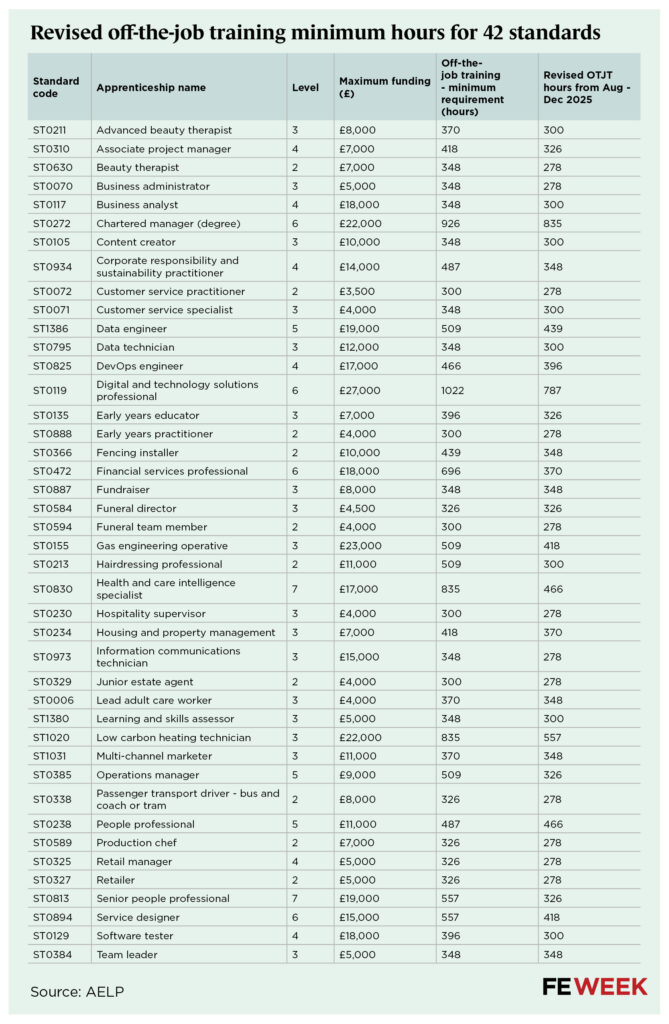The government will temporarily slash minimum off-the-job training (OTJ) hours for 39 apprenticeship standards by up to half after concerns emerged that the timing to implement new rules was “too short”.
The move, agreed by the Association of Employment and Learning Providers (AELP), is part of a four-month transitional period from August for apprenticeship standards “of concern” to allow training providers “headroom” to engage with employers and change delivery models.
The agreement comes after DfE’s May introduction of minimum off-the-job training (OTJ) hours for each apprenticeship standard for the first time.
DfE will publish an updated document with the revised minimum OTJ hours next month.
The changes were introduced in the funding rules for 2025-26, effective from August this year.
DfE said at the time that the changes were necessary due to the shortening of the minimum apprenticeship duration from 12 to eight months, as well as “the introduction of new products and feedback from the sector”.
But in an email to members today, AELP deputy chief executive Simon Ashworth said it had received feedback from providers that there was not enough time to talk to employers on the change nor to tweak their specific delivery models and curriculum.
“Some members also raised that they believed that in some instances, the required OTJT minimum hours had been set too high,” he added.
One standard of “concern” could have been the level 6 digital and technology solutions professional standard, which had been set a high minimum OTJ hours at 1022 hours. The transitional period will see a 23 per cent reduction to 787 hours for the standard.
Until now, training providers have had to calculate how much OTJ training each apprentice requires depending on the length of their apprenticeship – but must be a minimum of 20 per cent of their working hours.
The biggest difference in temporary OTJ minimum hours is the level 6 financial services professional, which has been reduced by nearly half (47 per cent) to 370 hours.
Other standards with large reductions include level 2 hairdressing professional and the level 7 health and care intelligence specialist, both minimum OTJ hours of which will briefly fall by over 40 per cent.
Three standards will not see and change in OTJ hours: these are the level 3 fundraiser, level 3 funeral director and level 3 team leader standards.
Additionally, 12 standards have had their OTJ hours reduced to the baseline of 278 hours.
“DfE’s criteria for inclusion are only where the minimum hours are “materially” different and that the baseline remains 278 OTJ training hours,” Ashworth said.
He added: “Having secured a transition, this allows some headroom for providers impacted. Over the next period of time, we think 3-6 months, the DfE will be working with Skills England to review standards included in the transition to decide on the right level of OTJT and subsequent funding.
“We recognise just how important this is, and are preparing ourselves to engage rapidly and fully with the Department to make sure we secure a reasonable outcome for you, for your employers and for your learners. Once we get more clarity on that process, we will share that with you as well.”
The transitional arrangements for the revised OTJ hours will be in place from August until December 2025.
See the full list below:

















Your thoughts